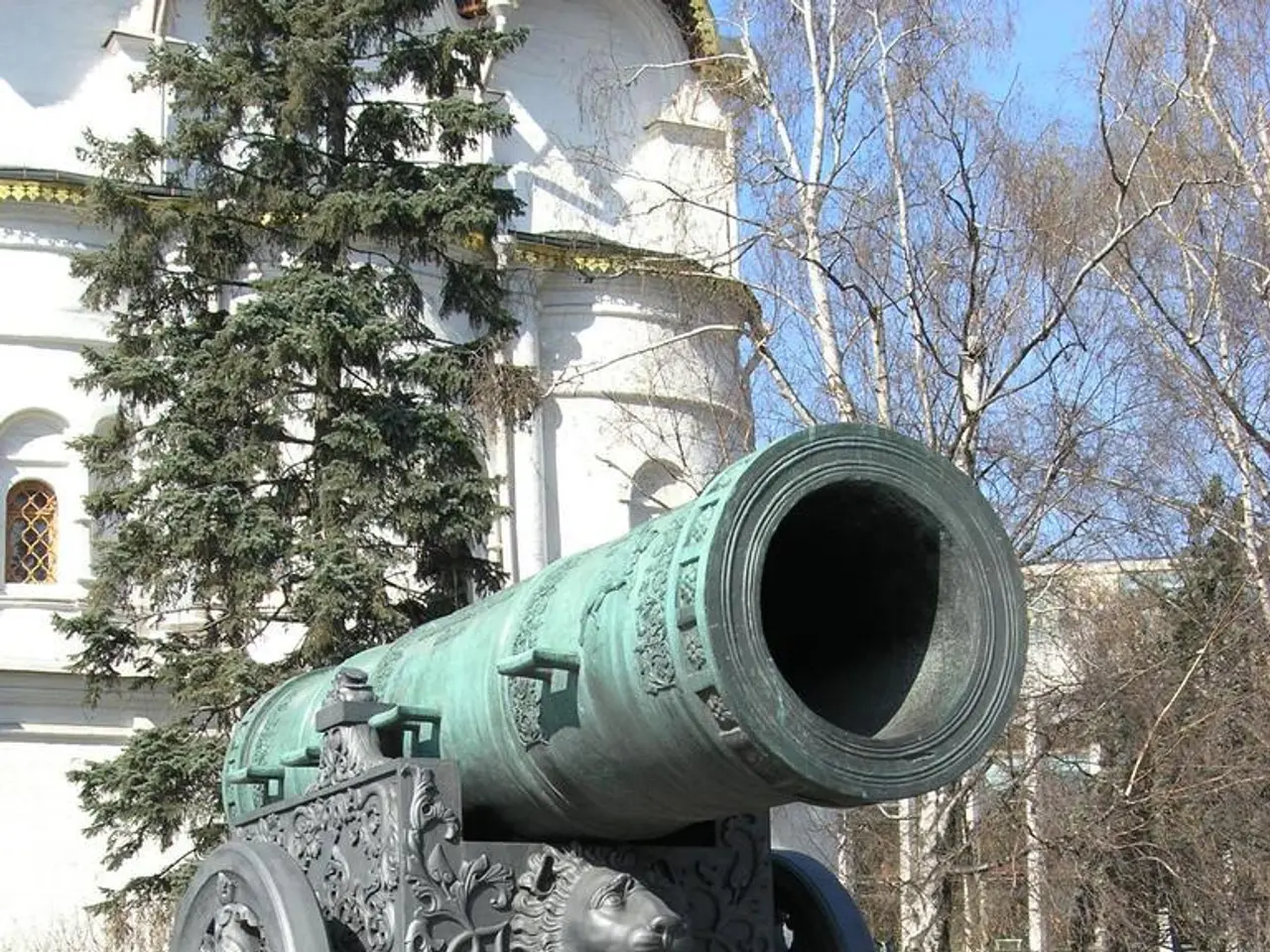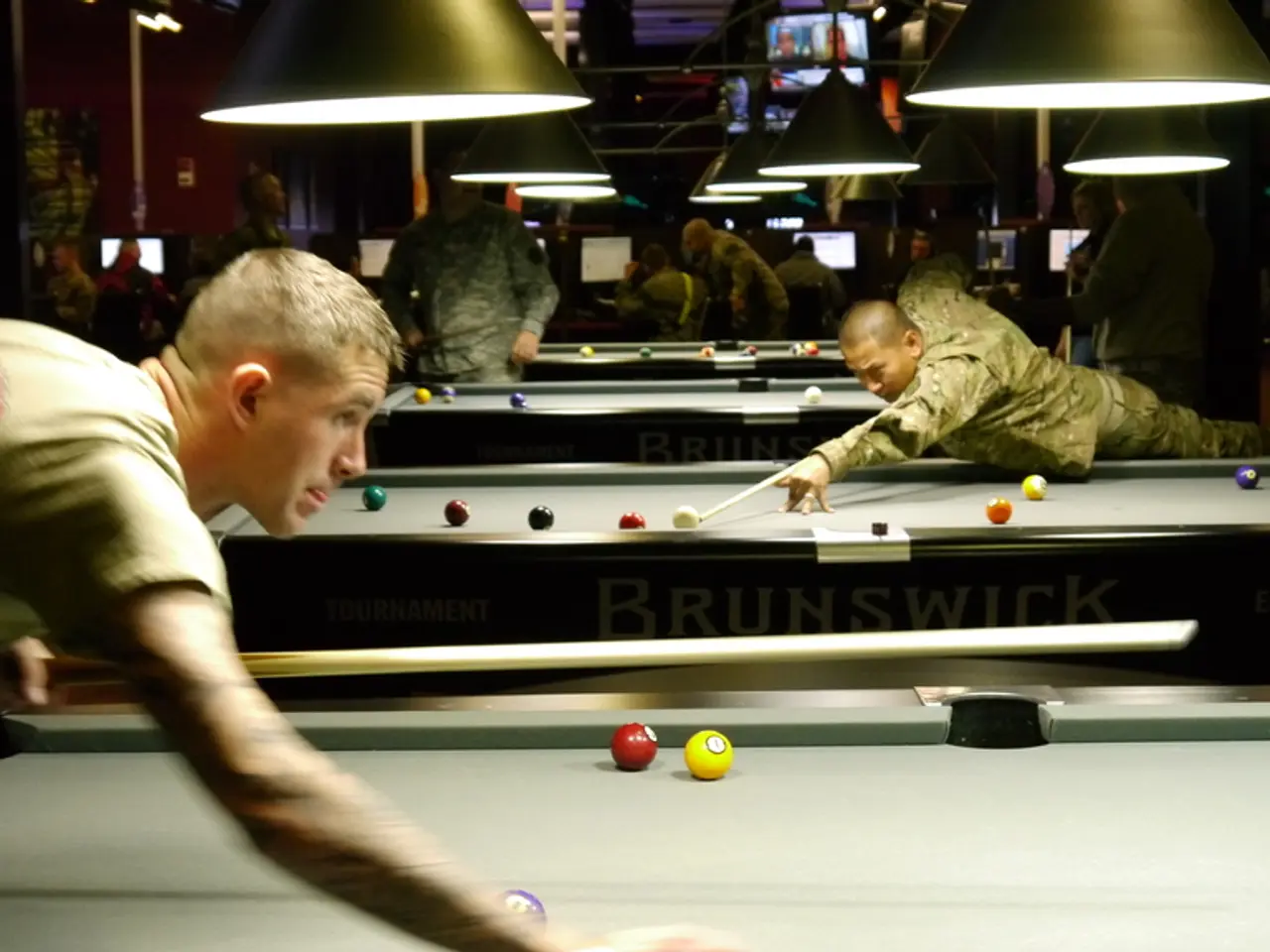Kremlin Associates Dismiss Trump's Perceived Threat as Unconcerning
In a move that reflects heightened tensions and nuclear deterrence dynamics between the U.S. and Russia, President Donald Trump has ordered the deployment of two nuclear submarines near Russia. However, the Kremlin and the foreign ministry have deliberately withheld responses to this deployment.
From the U.S. perspective, this move is intended as a strong and credible "costly signal" of military capability and resolve in response to what Trump characterizes as "highly provocative" and "inflammatory" statements from Russia's Dmitry Medvedev. The submarines serve as a powerful demonstration of the U.S.'s second-strike nuclear capability, a central element of deterrence aimed at discouraging further hostile rhetoric or escalation by showing readiness to respond decisively if necessary.
However, from the Russian perspective, the move was met with defiance and counter-warnings. Russian lawmakers underscored that Russia currently has more nuclear submarines deployed worldwide than the U.S. and expressed confidence in their submarines' superiority and control beneath the oceans. Medvedev’s nuclear warnings and framing of U.S. ultimatums as steps toward war highlight Russia’s interpretation of the deployment as escalatory and provocative, not merely defensive.
This deployment underscores the fragile state of U.S.-Russia relations amid the ongoing war in Ukraine and increasing sanctions, with nuclear posturing returning to the forefront of their strategic rivalry. It illustrates how nuclear submarines remain central to both nations’ deterrent strategies, serving as both a deterrent against aggression and a tool of strategic signaling.
Not all in Russia view the deployment as a threat to their security. Former general and Duma deputy Leonid Ivlev states that this deployment is not a threat to Russia's security, while Duma deputy Viktor Vodolazki believes it's pointless to try to scare Russia with the deployment. However, military expert Yuri Fedorov believes the deployment of the two nuclear submarines near Russia is a threat, and pro-Kremlin political scientist Sergei Markov wrote on Telegram that President Donald Trump is acting "stupidly and irresponsibly."
This deployment comes at a time when Trump is facing domestic political problems, including his role in the Jeffrey Epstein sex offender case, as hinted by Markov. There is a call for an agreement between Moscow and Washington to end talk of a third world war, as previously mentioned. The deployment of the nuclear submarines near Russia has not been addressed by the Kremlin or the foreign ministry, as previously mentioned.
If the submarines take position near Cyprus, their nuclear missiles would only need 10 minutes to reach central Russia, according to Fedorov. Even Vladimir Putin in his residence in Novo-Ogaryovo might not have time to react before his compound is turned into a nuclear crater, as per Fedorov's statement.
This deployment underscores the need for diplomatic efforts to de-escalate tensions between the two nations. It serves as a reminder of the importance of maintaining open lines of communication and avoiding provocative actions that could lead to unintended consequences. The potential for nuclear war should never be taken lightly, and it is crucial for world leaders to exercise caution and restraint in their actions and words.
- As the deployment of two nuclear submarines near Russia intensifies the nuclear standoff between the U.S. and Russia, policy-and-legislation discussions regarding war-and-conflicts and general-news are becoming increasingly important for both nations.
- The escalating tensions between the U.S. and Russia, highlighted by the deployment of nuclear submarines, underscores the crucial role of politics in managing and resolving war-and-conflicts, while also emphasizing the significance of policy-and-legislation in mitigating the implications of such deterrence dynamics.








